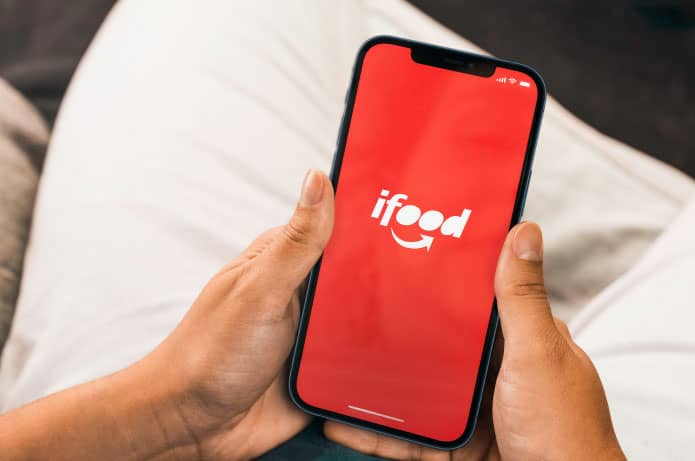Digitalization has profoundly transformed the way Brazilians consume products and services, impacting everything from payment methods to customer loyalty strategies. With increasingly demanding and connected consumers, companies need to adapt to maintain their relevance in the market.
The 6th edition ofstudy"Digital Transformation in Brazilian Retail" — conducted by the Brazilian Society of Retail and Consumption (SBVC), in partnership with OasisLab and with support from Cielo — revealed that 48% of companies increased their technology investments in the past year. Of these, 46% allocated more than 0.45% of gross revenue to this initiative.
Already theDigital Transformation Index Brazil (ITDBr), produced by PwC Brazil and Fundação Dom Cabral, indicated that 41% of Brazilian companies consider digital transformation essential for their investments. However, 45.1% still adopt a conservative approach, limiting themselves to modest investments.
For Kenneth Corrêa, a data specialist, MBA professor at FGV, and author of the book "Cognitive Organizations: Leveraging the Power of Generative AI and Intelligent Agents," digitalization is no longer a competitive advantage but a necessity for survival in the market. "Consumers demand seamless and integrated experiences across different channels, and companies that do not invest in this evolution risk losing relevance. The big challenge is that it is not enough to just implement new technologies; it is necessary to rethink business models to meet these new demands," he says.
What has changed in the way we consume?
If shopping was previously limited to physical stores, with long research and price comparison processes, today consumers can do all of this from anywhere, at any time, using mobile devices.
Customization has also become a differentiator. According toOutgrow, 90% of consumers prefer brands that offer personalized experiences, and 40% are more likely to buy products recommended based on their browsing habits and previous purchases.
Additionally, payment methods such as PIX and digital wallets have made transactions faster and more secure. According to theBanco Central,PIX is already the most used payment method in Brazil, adopted by 76.4% of the population.
Loyalty has also undergone transformations. Points programs have paved the way for strategies such as cashback, personalized service, and direct communication, creating a closer relationship between consumers and brands.
Below, eight experts discuss facts about how consumption in Brazil has been impacted by the digital age:
1) “Research is essential to understand the consumer”, comments Danielle Almeida (CMO of MindMiners)
Whether in a chatbot or assisting with payment methods, collecting and analyzing information has become essential to understanding consumer expectations and improving marketing strategies.
“Companies need to be aware of their customers’ real demands. Turning this data into concrete actions is essential to creating more effective loyalty strategies,” says marketing specialist and CMO at MindMiners, Danielle Almeida.
2) “We are living through an e-commerce revolution,” says Thiago Muniz (CEO of Receita Previsível)
E-commerce has transformed Brazilian retail. The first major marketplace emerged in 1999, and today the sector continues to grow rapidly thanks to the wide variety of products and the digitization of payment methods, explains sales expert and CEO of Receita Previsível, Thiago Muniz.
THEThe Global Payments Reportestimates that the global online shopping market will grow 55.3% by the end of 2025, generating around US$8 trillion.
A survey by Octadesk in partnership with Opinion Box showed that 62% of Brazilians make between two and five online purchases per month, while 85% buy online at least once in the same period."Today, with just a few clicks, the consumer can compare prices, read reviews, and complete a purchase quickly and securely," completes Thiago.
3) “It’s the era of data-driven personalization,” reveals Lucas Monteiro (Martech Leader at Keyrus)
Companies are increasingly investing in big data and AI to create tailored experiences for their customers. THEConsumer Trends 2025It points out that 78% of consumers prefer brands that offer personalized interactions."With intelligent use of data, it is possible to predict customer churn, segment campaigns, and offer products that truly make sense for each audience," explains Lucas Monteiro, technology specialist and Martech Leader at Keyrus.
4) “Digital payments dominate the market”, says Murilo Rabusky (Business Director at Lina Open X)
The digitalization of payments has brought more practicality, replacing physical money and cards with solutions such as PIX, digital wallets and Open Finance.
Open Finance, for example, in the last year, surpassed 47 million users in one month, according to data from the Brazilian Federation of Banks (Febraban). At the end of 2024, there were 57.62 million active consents, demonstrating steady progress.
According to Lina Open X Business Director Murilo Rabusky, the innovation arriving in 2025 that will impact the market is proximity PIX, because it promises to be a game-changer. "Just link an account to a digital wallet and authorize the payment with a tap or facial recognition. This increases consumer convenience and opens new opportunities for merchants," explains Murilo.
5) “Thedigital influencers dictate consumption”, he saysPedro Paulo Alves (co-founder of Boomer)
Today in Brazil, 144 million people are active on social media, and content creators are shaping trends and building the reputation of organizations. Large companies, like Magalu, are transforming their virtual assistants with the aim of making them more humanized. A "Lu", a digital influencer with millions of followers, strengthening the emotional connection with her clients.
"Companies are moving away from communicating solely as brands and are starting to act as content creators to truly connect with their customers. Therefore, the media teams of large companies have realized that advertising campaigns need to be more humanized and authentic, connecting with the audience in an efficient and genuine way. This connection is based on entertainment, that is, the ability to engage and involve the consumer through campaigns, building trust and driving the purchase decision," states Boomer co-founder Pedro Paulo Alves.
6) “Streaming consumption highlights the power of loyalty,” he declaresEduardo Augusto (CEO of IDK)
Companies like Netflix and Amazon revolutionized the market by investing in subscriptions, ensuring recurring revenue and retaining loyal customers for longer. This model is expanding into various sectors, such as fashion, food, and services.
"Amazon, for example, changed the game in retail and technology by creating new rules for the market and transforming the way we consume. From Amazon Prime, which made fast delivery a standard and retained customers through a subscription model with over 200 million members worldwide, to AWS, which dominates cloud computing, the company not only innovated but reinvented entire sectors. The Marketplace opened doors for millions of sellers, while Alexa brought artificial intelligence into the routines of millions of people," recalls IDK CEO Eduardo Augusto.
The result is an organization that sets trends in technology, user experience, loyalty, and operations.
7) “Taking care of the environment through the circular economy is essential”, he points outRaimundo Onetto (co-founder of Kwara)
The emergence of new consumption models, such as property rentals (Airbnb), online thrift stores (Enjoei), and digital auctions (Kwara), reflects the growing search for more sustainable alternatives. In this context, the circular economy gains strength by encouraging reuse, recycling, and extending the lifespan of products.
For Raimundo Onetto, co-founder of Kwara, an online auction platform, consumers are increasingly aware of the environmental impact of their purchasing decisions.
“Participating in an auction often means giving new life to a valuable item that is still in excellent condition, avoiding premature disposal and minimizing waste. This sustainable behavior is aligned with the values of many consumers who want to make more conscious choices. Furthermore, when considering auctions of products such as electronics, vehicles, machinery and real estate, this practice not only increases the usefulness of the goods, but also provides financial advantages. The combination of economy and environmental responsibility has driven interest in this acquisition model”, highlights Raimundo.
8) “The future is in the metaverse,” he saysKenneth Corrêa (innovation and data specialist)
With technological advancement, the metaverse presents itself as the next great revolution in consumption, enabling immersive experiences, interactive virtual stores and new relationship dynamics between brands and consumers.
Large companies are already exploring virtual environments for training, audience engagement, and business innovation. The challenge is to develop applications that truly deliver value, going beyond the excitement that marked the years 2022 and 2023. Currently, the main focus is on augmented reality glasses, which have become lighter and allow the user to see the real world at the same time as receiving information projected onto the lenses, explains Kenneth.
Our future will be 100% connected
In the coming years, the shopping journey will be transformed by more advanced and integrated technologies. Generative artificial intelligence will play a central role, providing personalized recommendations and more humanized automated interactions. The use of data and machine learning will also evolve, making offers more precise and tailored to consumer behavior in real time.
Immersive commerce, driven by the metaverse and augmented reality, will allow consumers to virtually test products, enhancing the experience and reducing returns. Furthermore, payment methods will continue to evolve, making transactions faster and more secure.
Digital sustainability will also be a priority, with consumers demanding practices such as green logistics and the circular economy.In other words, continuous innovation is important for companies that wish not only to survive but also to thrive in a dynamic market, where adaptation and the ability to anticipate new consumer demands will be decisive for success, concludes technology and business expert, CEO Advisor, and President of Editora Brasport, Antonio Muniz.
___
Kenneth CorreaKenneth CorreaHe is a renowned specialist in Data, Artificial Intelligence, and the Metaverse. MBA professor at Fundação Getúlio Vargas (FGV), the professional has been helping to shape the next generation of leaders. Additionally, Kenneth is an international TEDx speaker and serves as the Strategy Director at 80 20 Marketing Agency, where he leads a team of 90 professionals. With 15 years of experience in marketing and technology, he develops innovative projects for major companies such as AEGEA, JBS, and Suzano. Recently, he launched his first international book at MIT (Massachusetts Institute of Technology), "Cognitive Organizations – Leveraging the Power of Generative AI and Intelligent Agents," which explores the impact of AI on organizations. For more information:Kenneth Correa.
Open Line
Lina was born with the goal of building technological solutions to support Brazilian financial institutions and insurers in all needs related to the data sharing and services ecosystem of Open Finance. The company, which began its work in Open Banking, is already a leader in Open Insurance and has established itself as one of the most important Open Finance providers in the Brazilian market, being the strategic partner of major institutions such as B3, RTM, and TecBan. Find out more: https://linaopenx.com.br/
Queirus
QueirusIt is a global digital transformation consultancy, operating in 27 countries and with a team of over 3,300 specialists. Recognized by Forbes as one of the best consulting firms in the world, the company operates in three main areas: Data Intelligence, Digital Experience, and Management & Transformation Consulting.
Keyrus stands out as a leader in offering innovative proposals in BI, Data-Driven Journey, Artificial Intelligence, Hyperautomation, Martech, Digital Products, and Augmented Solutions for Industry. This strategic approach enables the company to combine its technical expertise with a deep understanding of each client's challenges, resulting in customized deliveries that meet the specific demands of each sector.
Furthermore, Keyrus is recognized in Brazil as a leader in the quadrants of Advanced BI & Reporting Modernization Services – Midsize and has gained prominence as a "Market Challenger" in the quadrants of Data Science & AI Services and Data Modernization Services – Midsize, according to the ISG 2024 report. These achievements reaffirm Keyrus's commitment to excellence and innovation in digital transformation, solidifying its prominent position in the market. To learn more, visit the websiteQueirusorLinkedIn.
MindMinersA MindMiners It is a technology company operating since 2013, committed to innovation to bring disruptive solutions to the consumer insights market. By combining research, technology, and data intelligence, it helps major brands across various sectors make efficient business decisions based on reliable data that reflects consumer behavior. The company has a proprietary and exclusive respondent panel, MeSeems, which brings together over 5 million people from across the country. They share ideas, preferences, and routines, generating a valuable database of information. Among the clients currently part of MindMiners' portfolio are Itaú, Renner, Vivo, Nestlé, Diageo, and TikTok. Learn morehttps://mindminers.com/
BoomerBoomer is a company specialized in performance media, growth marketing, data intelligence, and sales to accelerate brands. She uses tools such as conversion rate optimization (CRO) and paid media management, helping brands maximize their return on investment (ROI) in the digital environment. With a data-driven approach, Boomer offers customized solutions aimed at improving user experience, increasing conversion rates, and boosting the performance of digital channels. With a team of highly skilled specialists and a portfolio of major market companies such as Chima Steakhouse, HS Sports, Mamma Jamma, GE Beauty, and Rock The Mountain, Boomer has been a strategic partner for companies seeking to achieve exceptional results and transform their online operations.Learn more.
IDKIDK It is a renowned consultancy in Brazil that offers solutions combining technology, design, and communication. The integration of these three areas in IDK is what results in the quality of deliveries, innovation, and high performance of its clients. The goal is to help companies that want to turn their aspirations into reality by building real connections and learning through data analysis and personalized service. IDK assists large companies in branding, media, data, gaming content, video production, digital development, service release, customer experience, UI, UX/CX research, and CRM. Technology is not the end, it's just the means, this is IDK, welcome!
KwaraKwaraIt is a platform that sells goods, products, and assets of any nature to companies of any sector and location in Brazil. The business offers cutting-edge technology, security, agility, and large-scale reach, providing a complete solution so that sellers and buyers don't have to worry when it comes to buying and selling. Learn more atKwara.
Antonio MunizAntonio MunizHe is a renowned leader in the technology and business sector, serving as CEO Advisor and President of Editora Brasport, where he provides high-impact strategic consulting. Your role goes beyond the educational sphere, also serving as president of the Technology Committee in two academies, where you promote networking and professional development. Muniz is widely recognized for his ability to connect people and ideas, always with the goal of promoting collective growth and mutual success. As a Community Leader of the Collaborative Journey, he is a reference in areas such as Agility, DevOps, Lean, QA, OKR, and Digital Transformation. In addition to being a writer, speaker, and professor of Executive MBA in Agility, Technology, and Business at Anhanguera Educacional, Muniz is the author and editor of several books on technology and management. For more information, visit:LinkedIn.












